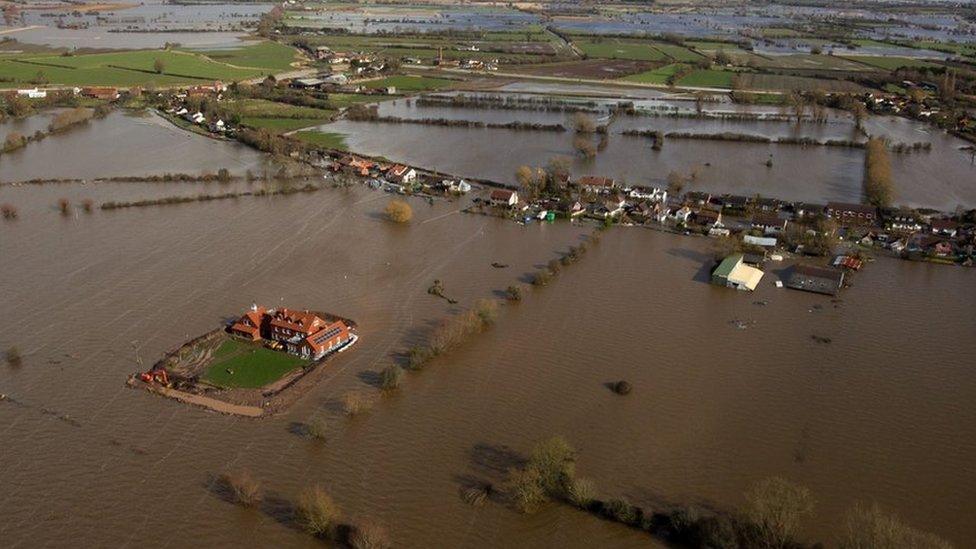Floods may make Somerset Levels farming impossible
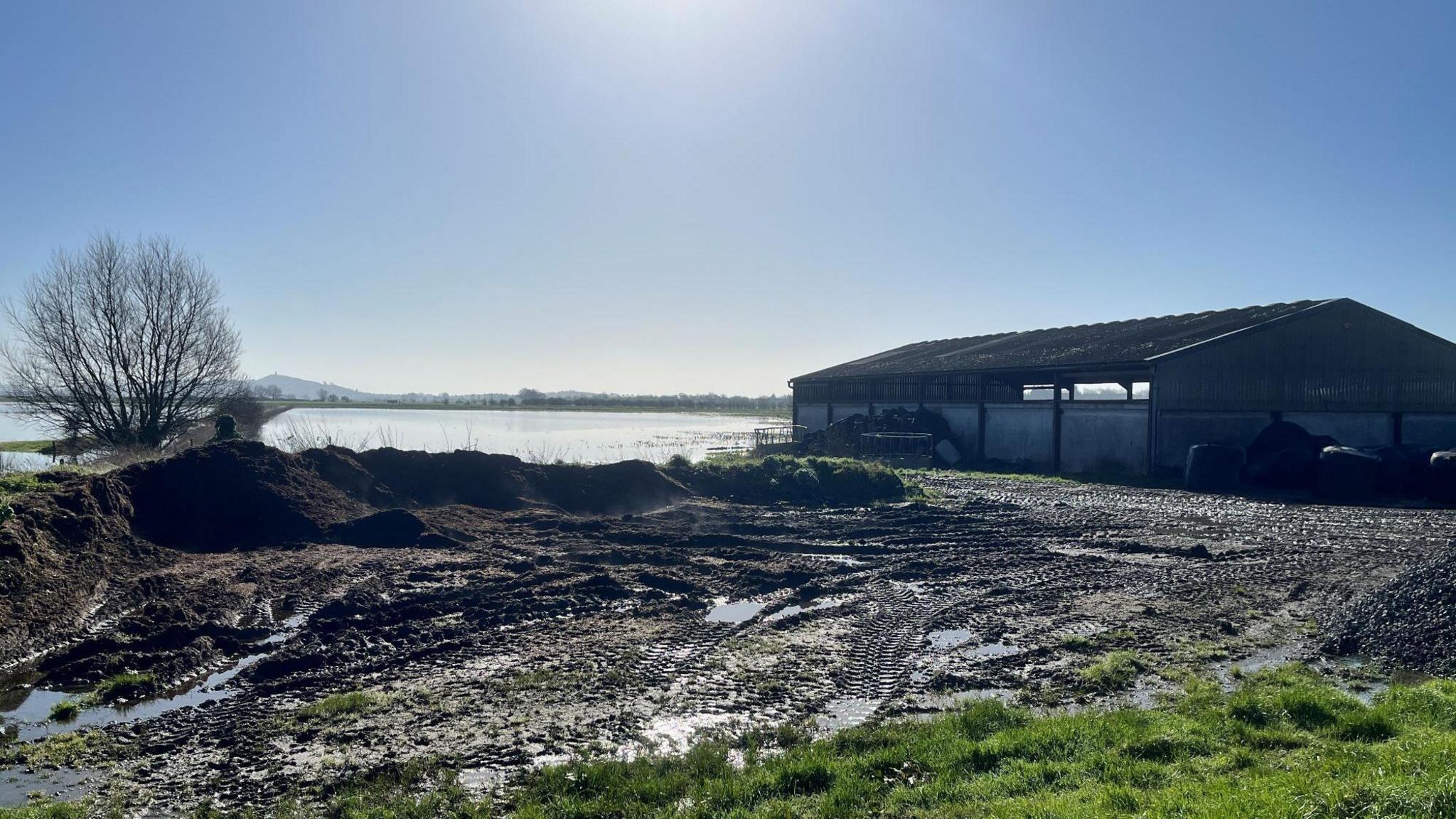
The land at Alan Franks' farm has been underwater since October 2023
- Published
A Somerset Levels farmer says his land could become "unfarmable" if flooding continues.
Alan Franks, 78, whose family has been in dairy farming since his farmer began working the land on Blakeway in the 1950s, estimates 350 acres of his land has been underwater since October - meaning he is unable to grow feed or let his cattle roam.
He believes problems around the River Brue, which runs through his land, could be solved and wants funding diverted from other rivers in the region.
Mr Franks said the current situation is "the worst I've ever seen".
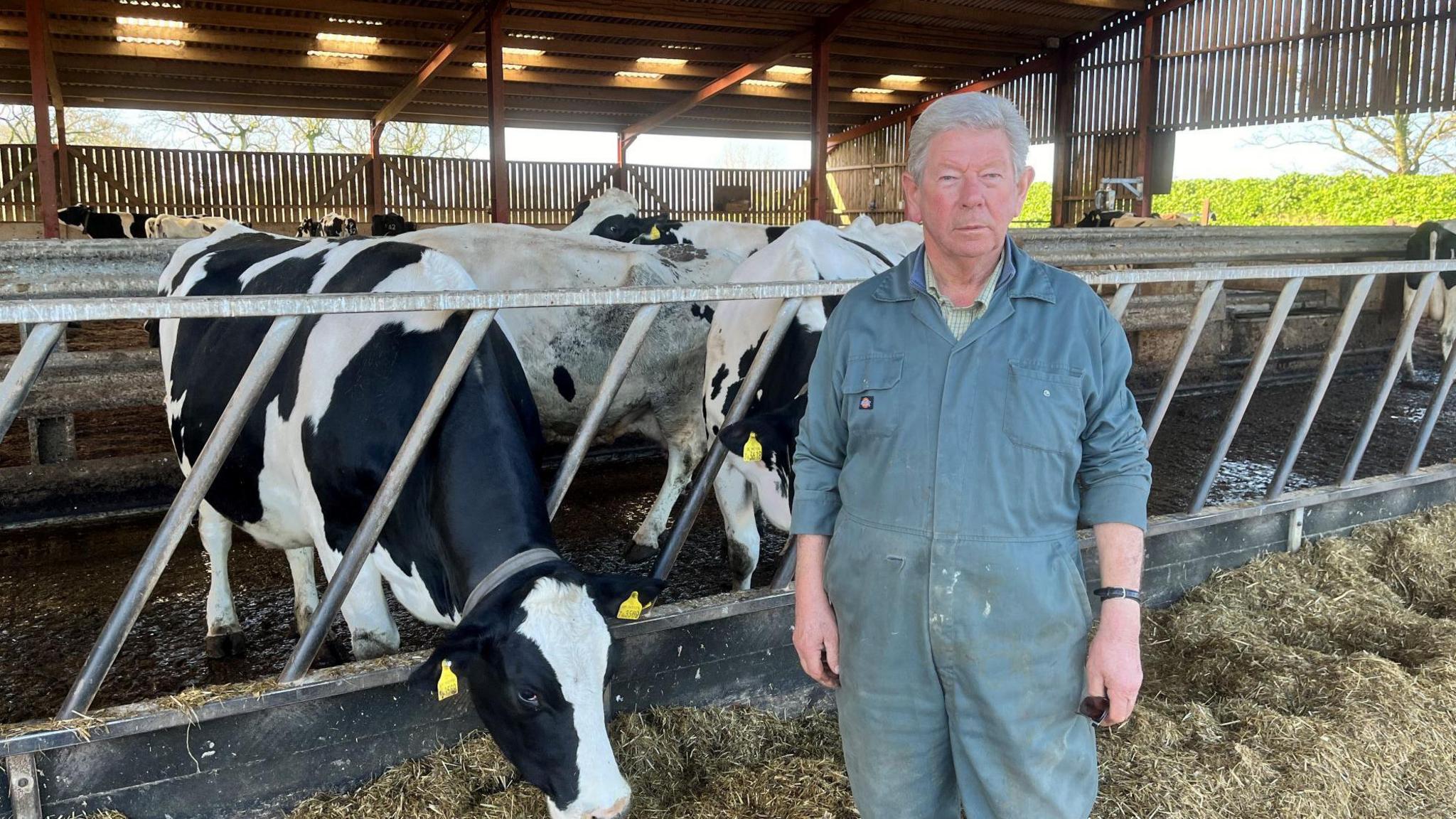
Alan Franks fears his farm may be at risk due to flooding
Mr Franks, told BBC Radio Somerset the severe rainfall across the county is the main reason for the excessive flooding, but warned the lack of river maintenance and dredging of the River Brue is the "biggest part of the problem".
He said the flooding has caused "loss of production" for him, adding the once the waters do recede, the ground will be "rotted", preventing him from growing feed for his cattle or sowing for a crop harvest.
Mr Franks says he fears for the future of his farm.
"It's unsustainable with flooding and the raised water levels," he said.
He added he wants to see money used by the local rivers authority diverted to the Brue, arguing it is largely spent on the rivers Tone and Parrett.
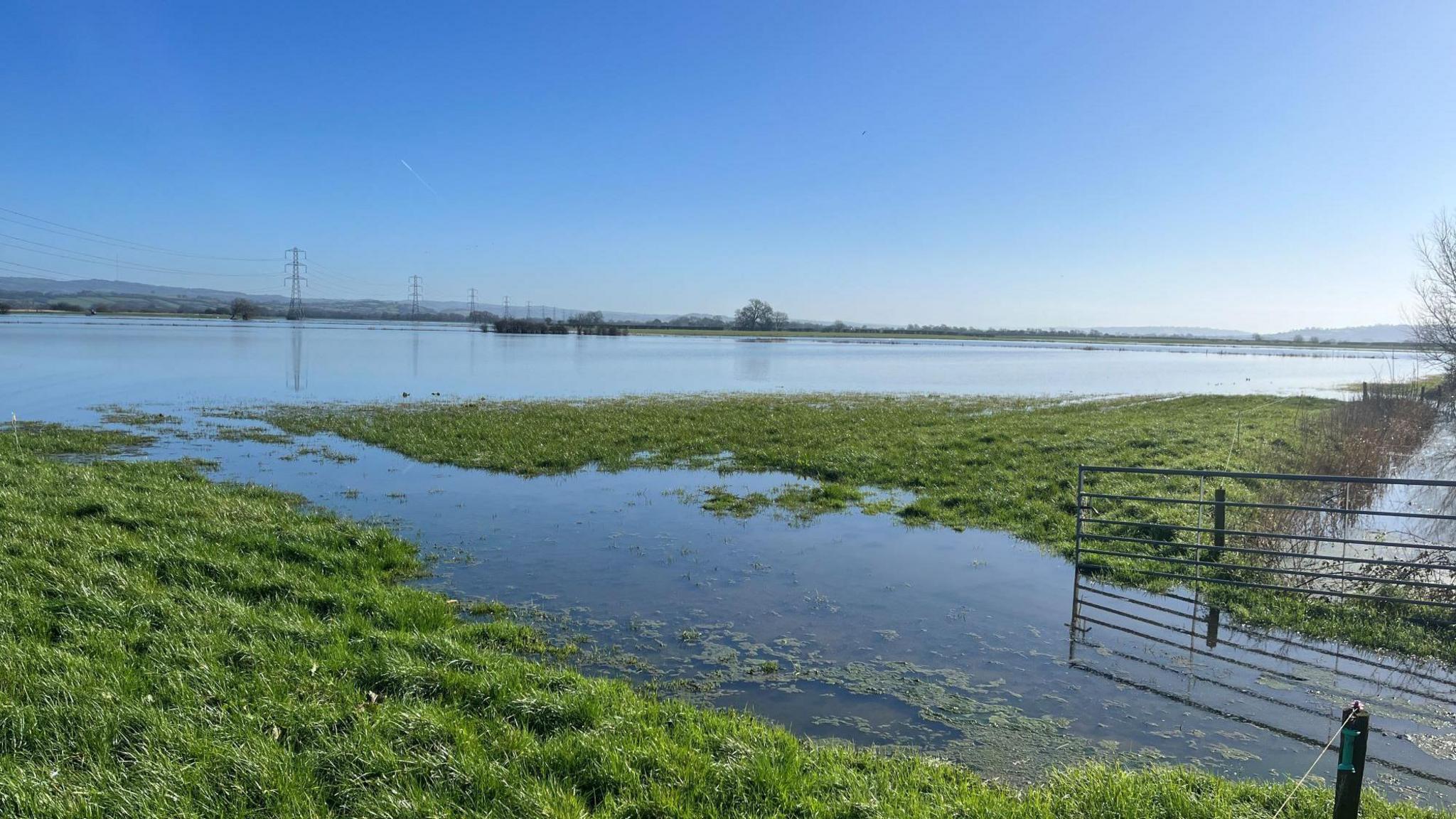
Chris Franks warned the constant flooding threatens the farm
Chris Franks farms alongside his father, and explained he is finding it "really difficult" with the water "hanging around".
He said: "We're finding it more and more difficult to farm the land in a sustainable and sensible way.
"We're constantly under pressure with prices and what we're paid... and from environmental schemes.
"We do work the environment, that's what we're in. If nothing changes it's going to become impossible.
"We're used to it flooding but to the extent we're getting, it's gone a bit beyond a joke now. It's impossible to manage it."
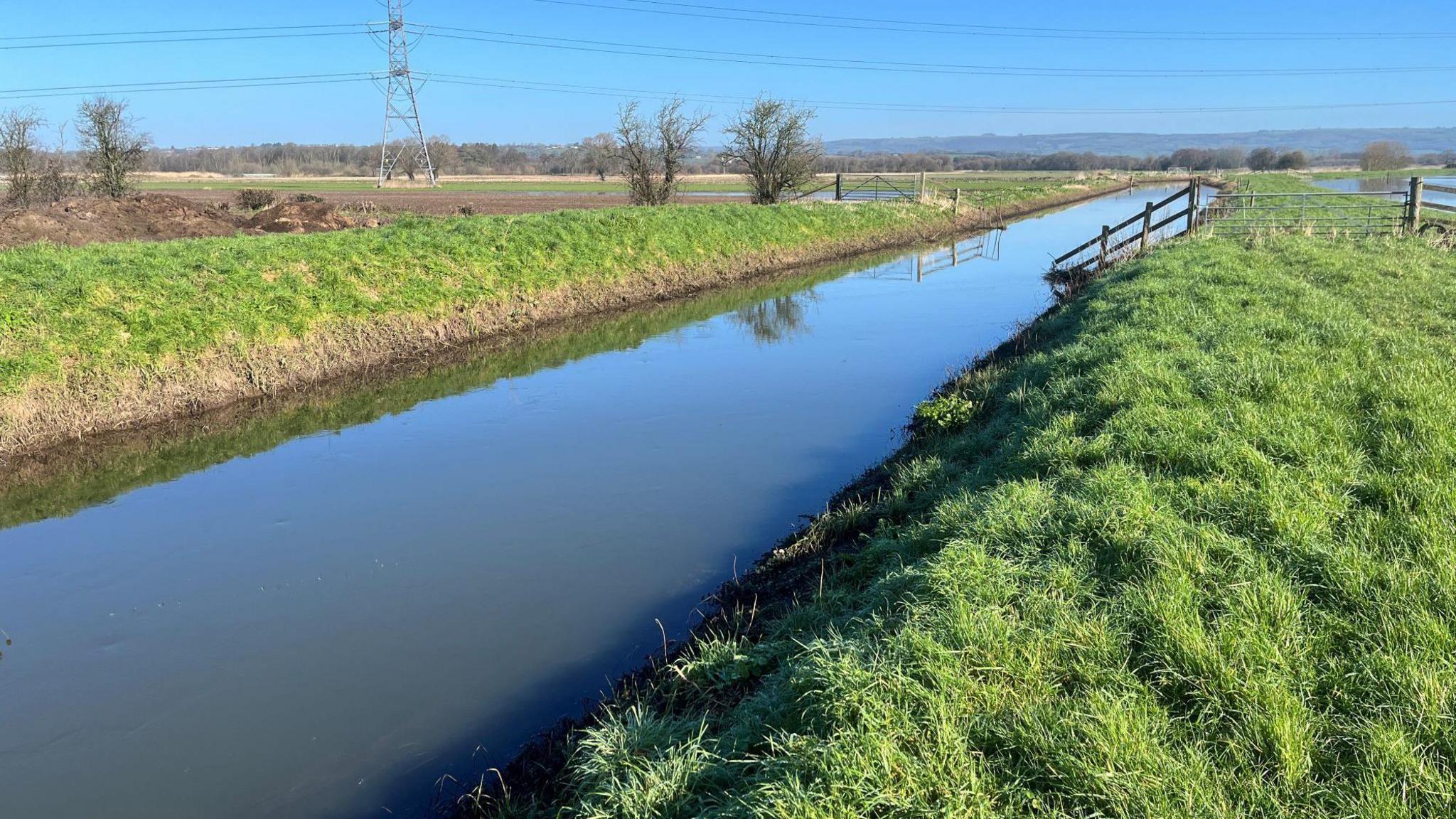
The River Brue runs through Mr Franks' land
An Environment Agency spokesperson said: "We are aware that it has been one of the wettest winter periods on the Somerset Levels since records began.
"We have deployed temporary pumps across the Levels to supplement our permanent pumping station capacity and remove flood waters as quickly as possible when river levels allow.
"More widely, we have thousands of gauging stations reading the flow and levels of water, providing the data which allows us to mitigate flood risk.
"We work closely with farmers and can and do dredge watercourses where there is evidence it would be beneficial."
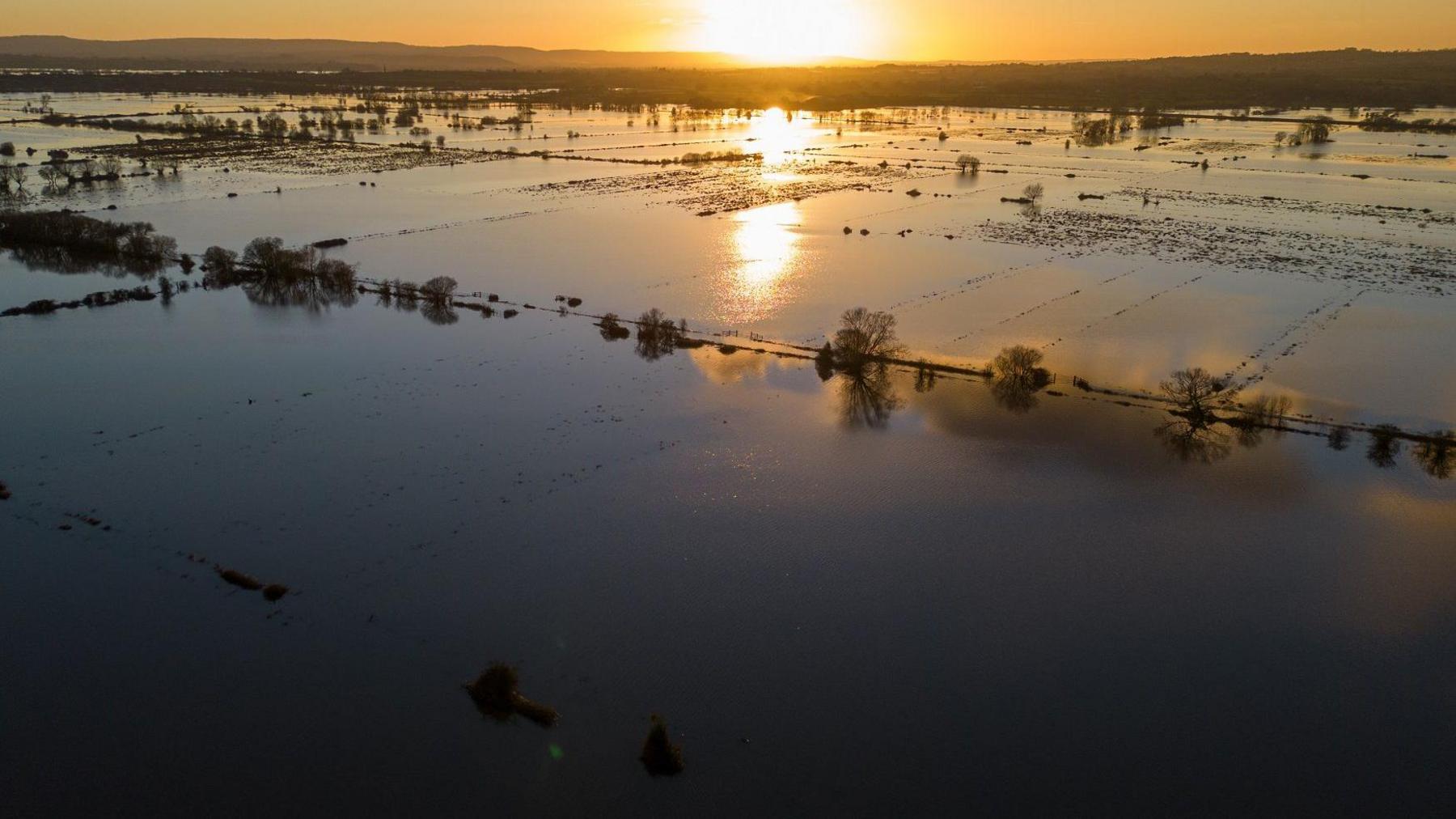
The Somerset Levels regularly flood but some residents fear the problem is getting worse
The Somerset Rivers' Authority told BBC Radio Somerset: "The SRA was set up after the 2013-14 floods which hit the Parrett and Tone catchments worst, so the SRA has funded a lot of work there.
"Schemes have been funded in the Brue catchment as well, but we know that people living there would like to see more done to improve their local river networks.
"That's why we recently updated the river modelling for the lower reaches of the Brue.
"This will help other organisations to identify where works are most needed and to plan schemes and activities that will benefit local people. We are very keen to help other bodies develop good proposals we could fund."
Related topics
- Published4 March 2024
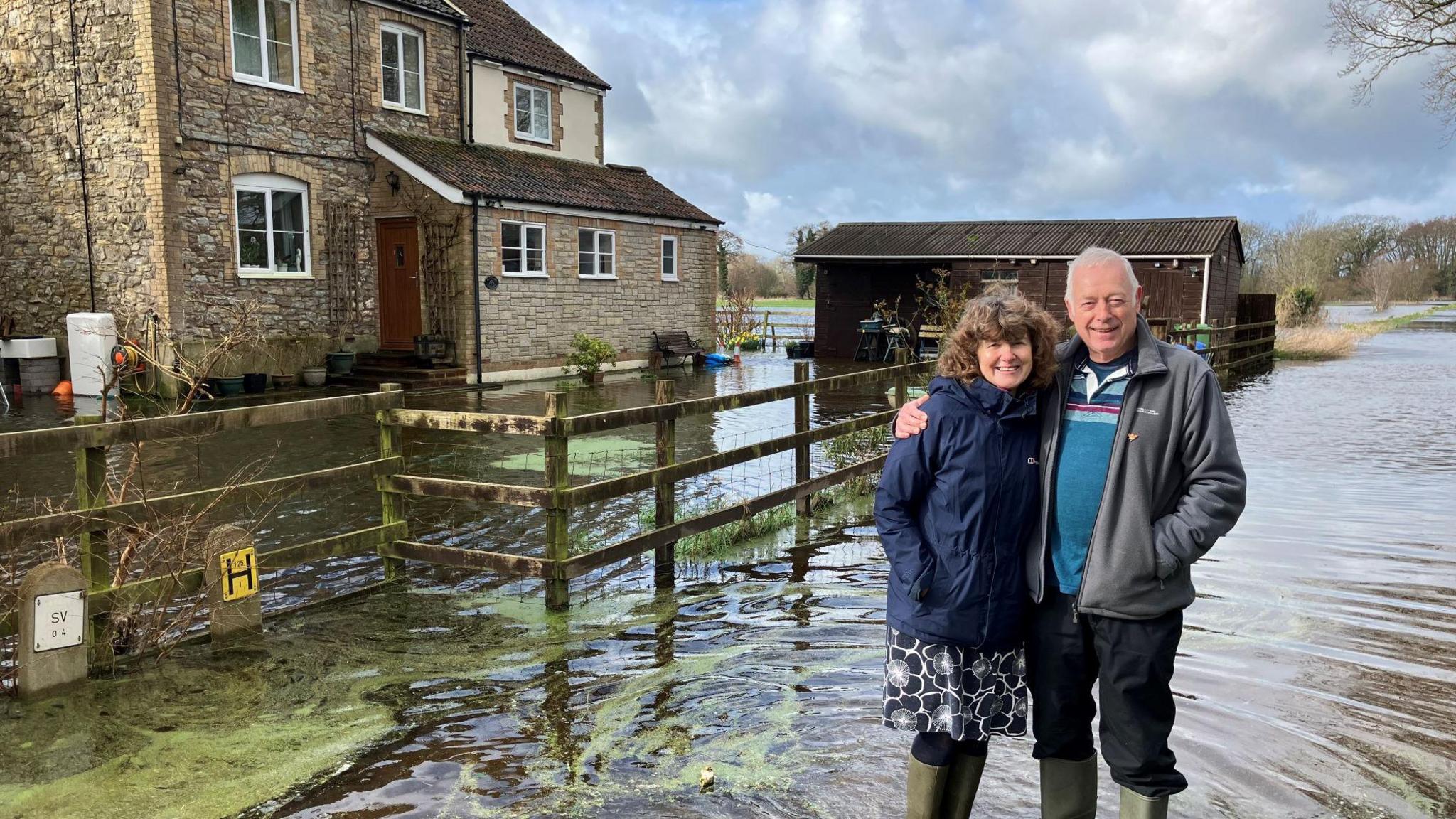
- Published29 February 2024
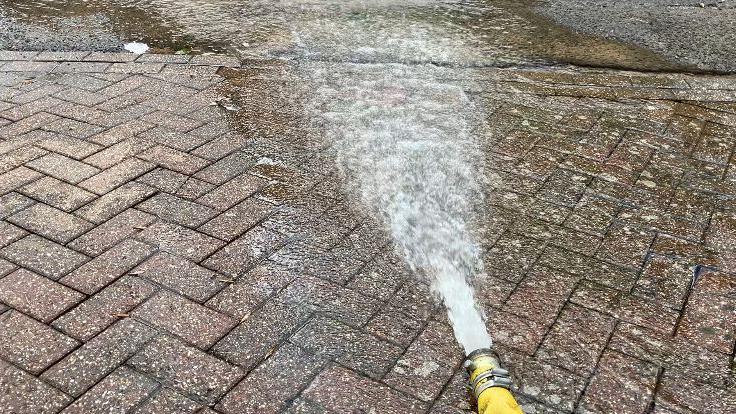
- Published5 February 2024
